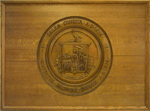Black Picnic: Difference between revisions
No edit summary |
No edit summary |
||
| Line 19: | Line 19: | ||
The city did not cancel the picnic, but formed an ad hoc committee to address concerns around the picnic. Parking would be monitored, no loud music and no public | The city did not cancel the picnic, but formed an ad hoc committee to address concerns around the picnic. Parking would be monitored, no loud music and no public | ||
drinking were allowed. The 2000 picnic proved a success, returning to its roots of being a family-centric picnic. Many less people showed up and it was a pleasant day. | drinking were allowed. The 2000 picnic proved a success, returning to its roots of being a family-centric picnic. Many less people showed up and it was a pleasant day. | ||
The Black Picnic still continues today, at the Salem Willows on the third Saturday in July. | |||
Revision as of 11:18, 20 May 2015
The Black Picnic which is held annually at Salem Willows on the third Saturday of July, started as a humble gathering of 26 slaves who met in 1741 for a quiet daylong celebration on their day off on the Saugus River in Lynn. The tradition continued into the 18th century, and dovetailed with another celebration started by clergy. By the 1920's it had become more of a "Sunday School Picnic" sponsored by black churches from Lynn, Malden, Everett, Cambridge and Boston.
In 1885, the picnic, then known as Colored People's Picnic, started meeting at the Willows, newly opened in 1880. In the early 20th century, the picnics had church choirs performing, and track and field events were held. Dances were held with wonderful jazz performers, suck as Duke Ellington and Cab Calloway. Some of the attendance numbers in the early years reported by the Salem Evening News were: 1907; 2,000 attended, 1919: 600 attended, 1924; 1,300 attended.
During World War II, the picnic was switched to the third Saturday of July - many of the African-Americans were then working in factories and defense plants and weekends were the only option. Churches took a less active part after World War II as well.
The name of the gathering was changed in the 1968, due to the civil rights movement. Black Power was recognized and people refused to be called colored, so the picnic was renamed the Black Picnic.
In 1999 the annual picnic brought a larger than normal crowd, enticed by radio promotions, vendors and amplified music. For the last few years before this, promoters advertised the event, got corporate sponsors and attracted the younger crowds from beyond the North Shore. That year the crowd became out of control, there was public drinking, fights and a stabbing later in the evening. The city did not cancel the picnic, but formed an ad hoc committee to address concerns around the picnic. Parking would be monitored, no loud music and no public drinking were allowed. The 2000 picnic proved a success, returning to its roots of being a family-centric picnic. Many less people showed up and it was a pleasant day.
The Black Picnic still continues today, at the Salem Willows on the third Saturday in July.
See Also
Vertical File in Salem Collection - Black Picnic
"Families reunite at annual Black Picnic" Salem News, July 17, 2006, p. A2
"A proud tradition: Salem's annual Black Picnic links generations - back to 1741" Boston Globe North, July 19, 2007, p. N 2
"History is marked in Salem with picnic" Boston Sunday Globe, July 16, 1995, p. 27
"City makes plans to rein in Black Picnic" Salem Evening News, Dec. 14, 1999, p. A2
"Black Picnic looks for return to roots" Salem Evening News, June 22, 2000, p. A3
"Just like the good old days; Black Picnic a day to share with family" Salem Evening News, July 17, 2000, p. A1
"Tradition binds generations; Black Picnic origins can be traced back for two centuries" Salem Evening News, July 18, 1994.
